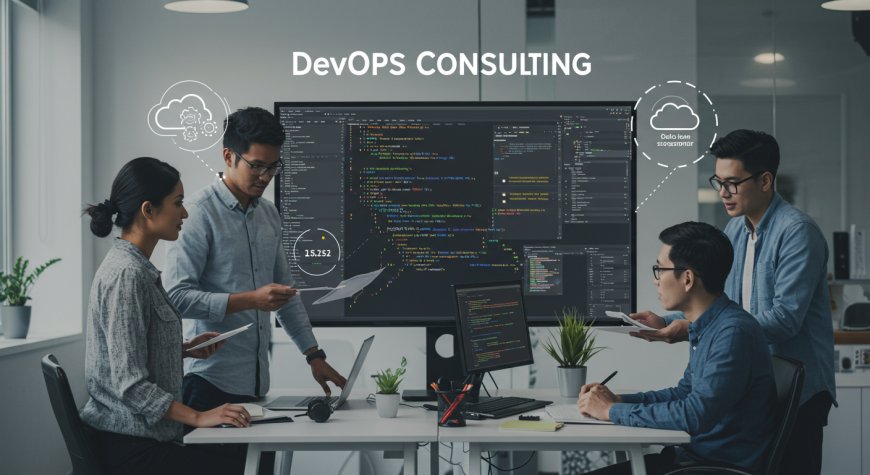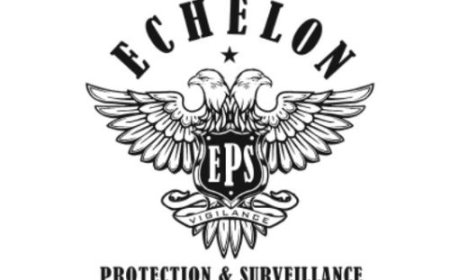DevOps Consulting for Legacy System Modernization Bridging the Gap Between Old and New
Modernize your legacy systems with expert DevOps consulting. Automate deployments, increase uptime, and bring agility to outdated infrastructure.

Many businesses today still rely on legacy systems applications and infrastructure built on outdated technology stacks that, while once reliable, now slow down innovation. These systems are often monolithic, difficult to update, and resistant to integration with modern development practices.
However, replacing them entirely can be expensive and risky. Instead, companies are increasingly turning to DevOps consulting as a strategic way to modernize legacy systems without halting operations or starting from scratch.
This article explores how DevOps consultants help organizations modernize their legacy environments by introducing automation, continuous integration, and scalable infrastructureall while preserving mission-critical business functionality.
The Challenge with Legacy Systems
Legacy systems are often core to a businesss daily operations, but they typically suffer from several problems:
-
Slow deployments: Releases require manual steps and extended downtime.
-
Lack of version control: Code changes arent properly tracked or reviewed.
-
Fragile environments: Minor updates can break the system.
-
Limited scalability: Performance degrades under modern workloads.
-
Security vulnerabilities: Older systems are more susceptible to attacks and compliance failures.
Despite these issues, many organizations are hesitant to decommission legacy systems because of cost, complexity, or fear of disruption.
This is where DevOps consulting becomes valuableoffering a structured, incremental path to modernization.
How DevOps Consulting Supports Legacy Modernization
Rather than rip and replace, DevOps consultants provide a roadmap for transforming legacy systems into agile, resilient, and scalable platforms. Heres how they do it:
1. Assessment and Strategy
DevOps consultants begin with a full technical and business assessment of the legacy environment. This includes:
-
Auditing codebases and infrastructure
-
Identifying bottlenecks in deployment processes
-
Analyzing business dependencies and risks
-
Prioritizing components for modernization
They then develop a step-by-step strategy that aligns with business goals, often focusing on low-risk areas first while ensuring continuity of service.
2. Implementing Version Control and CI Pipelines
Many legacy systems lack proper source control. DevOps consultants help migrate codebases into Git or other modern version control systems, establishing clean branching strategies and workflows.
From there, they set up continuous integration (CI) pipelines to automatically run tests and validate changes. Even if the system is written in older languages like PHP, Java, or .NET Framework, automation tools can be customized to suit.
3. Containerization and Service Decomposition
One key modernization approach is to gradually containerize parts of the legacy system. DevOps consultants use Docker to wrap components, making them more portable and isolated from the host OS.
In some cases, the monolithic application is gradually decomposed into smaller services, often starting with non-critical functions like authentication, reporting, or API gateways. These are deployed using Kubernetes or other orchestration tools for better scalability.
4. Infrastructure Automation
Legacy infrastructure often relies on manually configured servers. DevOps consulting introduces infrastructure as code (IaC) using tools like Terraform, Ansible, or CloudFormation to provision and manage infrastructure automatically.
This allows for predictable environments, faster disaster recovery, and consistent deployments across dev, staging, and production.
5. Monitoring and Observability
Older systems rarely have robust monitoring in place. DevOps consultants implement observability solutionstools that track system metrics, error rates, and performance in real time.
Whether its through Prometheus, Datadog, ELK Stack, or AWS CloudWatch, these insights enable businesses to spot issues early and resolve them before users are affected.
6. Automated Testing and Deployment
DevOps consultants help introduce automated testingunit, integration, and regressioninto the legacy application lifecycle. Then they implement continuous deployment (CD) pipelines that ensure safer, faster releases with rollback capabilities in case something goes wrong.
This transition reduces the fear and risk traditionally associated with deploying updates to critical systems.
7. Security and Compliance Updates
Modern security practices often dont exist in legacy environments. Consultants introduce automated vulnerability scanning, secrets management, access control, and update policies that improve security without disrupting core operations.
They also align systems with industry standards (e.g., ISO 27001, HIPAA, PCI-DSS), enabling safer customer data handling and audit readiness.
Real-Life Example: A Legacy ERP System Modernization
A mid-sized manufacturing company relied on a 12-year-old custom ERP system running on outdated Windows servers. Every update required several hours of downtime and often resulted in post-deployment bugs.
By hiring a DevOps consulting team, they:
-
Migrated the ERP codebase to GitHub
-
Introduced CI pipelines using Jenkins to run automated regression tests
-
Containerized the systems frontend for better portability
-
Automated infrastructure setup on Azure using Terraform
-
Integrated centralized logging and real-time alerts
Within six months, deployment time was reduced from hours to 10 minutes, with fewer bugs and better developer collaboration.
Benefits of Using DevOps Consulting for Legacy Systems
Engaging DevOps experts for legacy modernization offers several advantages:
Incremental Transformation
Instead of high-risk migrations, modernization is broken into small, manageable phases.
Reduced Downtime
Automation reduces deployment errors and system interruptions.
Improved Developer Experience
Version control, CI/CD, and containerization empower developers to work faster and with more confidence.
Enhanced Security
Modern tools and workflows introduce better protection against threats.
Cost Efficiency
Improved performance, scalability, and automation reduce maintenance and hosting costs.
When Should You Consider DevOps Consulting?
You should seek DevOps consulting for legacy systems if:
-
Your deployments are risky, slow, or manual
-
You're planning to move your legacy system to the cloud
-
You face performance, scaling, or security challenges
-
Your IT staff spends more time fixing than building
-
Your development team avoids making changes due to fear of breaking things
Final Thoughts
Legacy systems dont have to be a liability. With the right guidance, they can evolve into stable, modern platforms that support innovation instead of slowing it down.
DevOps consulting provides a bridge between traditional systems and modern practices, giving businesses the tools and expertise to modernize at their own pacewithout compromising performance or stability.
Whether you want to improve deployments, adopt containers, or automate infrastructure, DevOps consultants help you bring legacy systems into the futuresecurely, affordably, and intelligently.





























